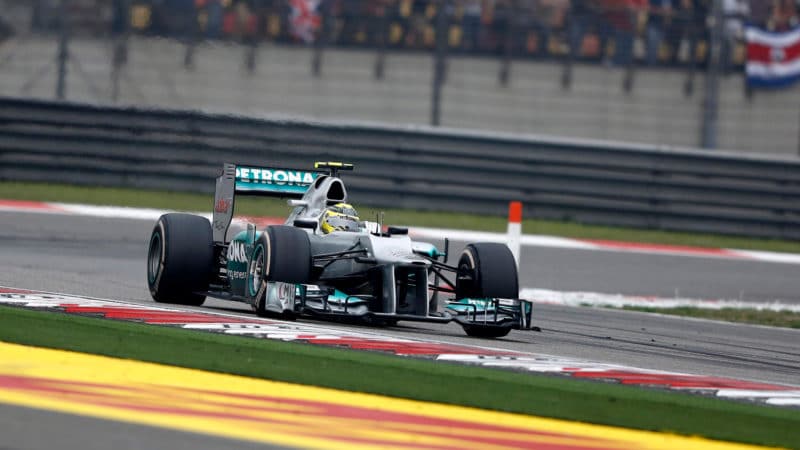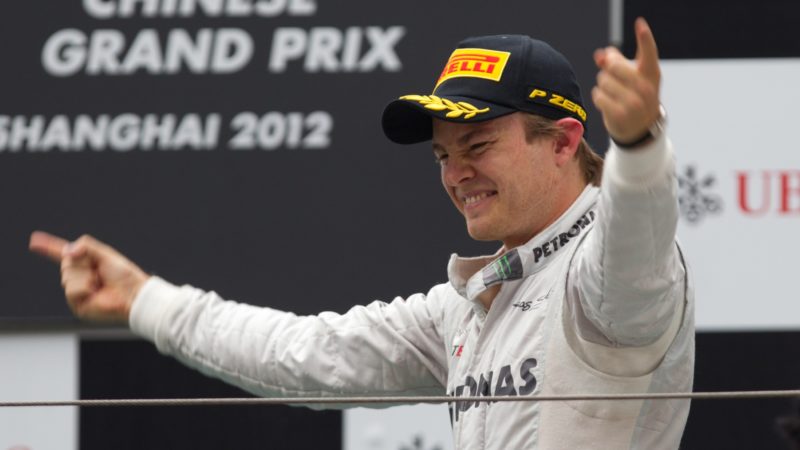Mercedes’ return to Formula 1 racing didn’t immediately bring results. A period spent in the midfield is a long-forgotten memory now but the initial impact was a lot less impressive than the winning machine now known.
The paint scheme was a none-too-subtle link back to the mighty Silver Arrows of Caracciola, Fangio and Moss. The weight of history piled more expectation on Mercedes, which had powered the previous two world champions.
Having bought out the reigning world champion outfit in Brawn GP, a returning Michael Schumacher was enlisted to join the team, creating fantastical headlines though the seven-time champion was largely overshadowed on track.
Rosberg joined the team from Williams and was quickly up to speed. Two podium finishes in the opening four rounds of 2010 was a respectable start to his Mercedes career and he’d add another at the British GP.
2010 had been a solid if not spectacular start to its F1 return, but that next phase took a lot longer to arrive than many, not least Mercedes itself, had expected it to.
No podiums in 2011 and it looked like things were going backwards. A solitary fourth place in Canada was as good as things got but the start of 2012 was a move in the right direction once again.
When F1 arrived in Shanghai for the 2012 Chinese Grand Prix, Rosberg was about to join the illustrious list of F1 race winners.

Rosberg was able to nurse his tyres on a two-stop strategy but maintain a comfortable pace advantage
Gu Zhichao/Sports Illustrated China/Getty Images
Mercedes had earned the attention of rivals for its innovative f-duct concept but that wasn’t the sole aspect of why the team was quick during the weekend.
Tyre management in Sunday’s race was a critical factor in separating those in contention for the victory and those treading water in the lower-reaches of the points-paying positions. In the prior two rounds, Mercedes had struggled to find any sweet spot to make the tyres work.
Schumacher’s solitary point in Malaysia was the only rewards to show for the team’s efforts up to the Chinese GP.
The team’s one-lap pace was strong though, in fact leading in Shanghai through much of qualifying. The confidence was building so much so, that after his initial Q3 effort, Rosberg got out of his car for the final two minutes and watched the rest try to get close. Nobody got within half a second.




